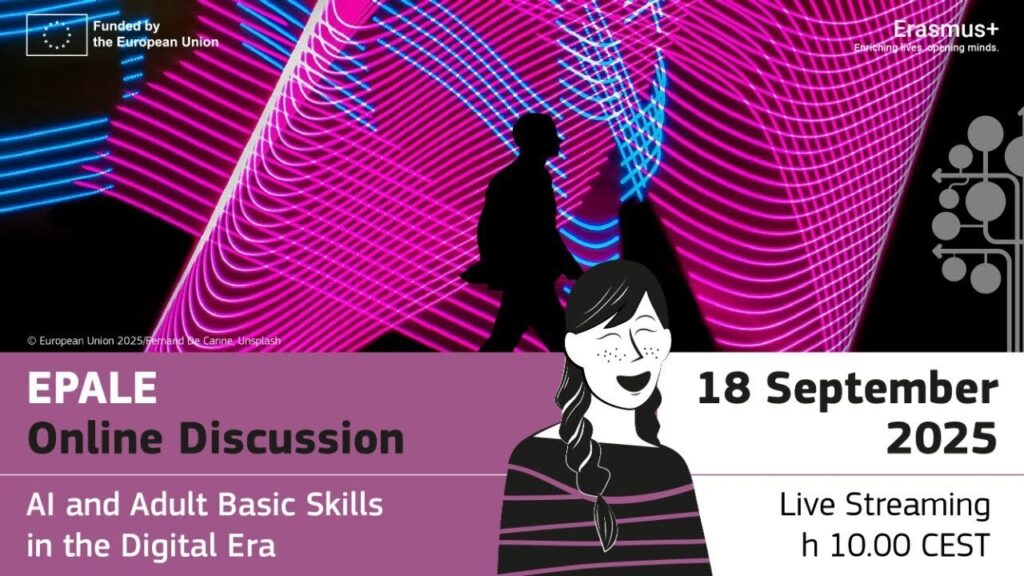Artificial Intelligence is transforming how we teach and learn — creating new opportunities, but also new challenges for adults with low basic skills.
In September, the European Basic Skills Network (EBSN) facilitated an online discussion on EPALE about the role of AI in adult learning. The debate explored how AI can support learning — through personalised pathways, translation tools, or digital assistants — while also raising important questions about bias, misinformation, and digital exclusion.
The discussion featured contributions from Damian Faeh, Executive Committee Member of the EBSN; Professor Jorge Baptista, expert in computational and theoretical linguistics at INESC-ID Portugal; and Tamás Harangozó, EPALE Adult Learning Expert and EBSN representative. Together with EPALE community members, they reflected on how AI is already being used to support literacy, numeracy, and digital skills development across Europe.
Participants shared inspiring examples and practical insights — from classroom applications of AI-generated content and text-to-audio tools to reflections on the importance of AI literacy and critical thinking in adult learning. The discussion underscored the need for continuous professional development and the creation of ethical, inclusive learning environments that use AI responsibly.
In this context, the EBSN underlined the importance of collaboration across the adult learning sector. Programme designers, providers, researchers, and policymakers are encouraged to share initiatives, pilot projects, and lessons learned on applying AI in basic skills provision. The network also calls for joint efforts in awareness-raising, ethical practice, and educator training, to ensure that AI becomes a true force for equity and empowerment in adult learning.
Read the full discussion on EPALE
This discussion forms part of the EBSN’s ongoing contribution to the European debate on adult learning and basic skills, promoting innovation and inclusion in the digital era.

